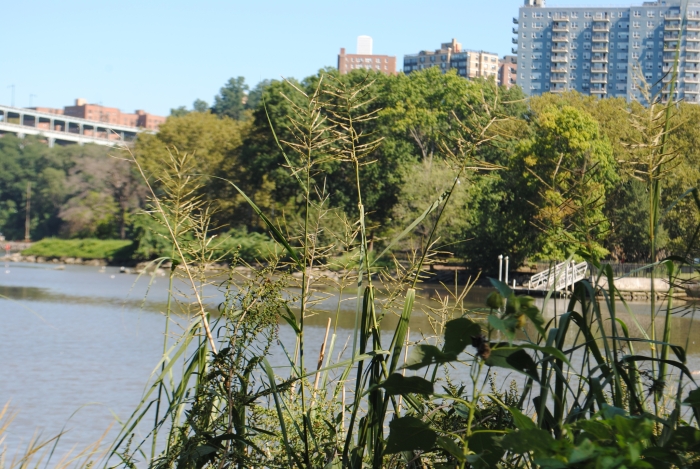Big Cordgrass
(Spartina cynosuroides)
Big Cordgrass (Spartina cynosuroides)
/
/

Zihao Wang
CC BY 4.0
Image By:
Zihao Wang
Recorded By:
Copyright:
CC BY 4.0
Copyright Notice:
Photo by: Zihao Wang | License Type: CC BY 4.0 | License URL: http://creativecommons.org/licenses/by/4.0/ | Rights Holder: Zihao Wang | Publisher: iNaturalist | Date Created: 2018-09-16T11:25:13-07:00 |













Estimated Native Range
Summary
Spartina cynosuroides, commonly known as Big Cordgrass or Salt Reedgrass, is a rhizomatous perennial grass that can reach up to 10 feet in height. It is native to coastal salt marshes and brackish wetlands in the eastern and southern United States, where it plays a crucial role in shoreline stabilization and provides habitat for wildlife. The leaves of Big Cordgrass are robust, reaching up to 24 inches in length and an inch in width, with a stem diameter of approximately ¾ of an inch at the base. The plant features a yellow inflorescence with up to 40 spikes, each up to 3 inches long, which bloom in late summer to fall.
Big Cordgrass is valued for its ability to thrive in challenging coastal environments, making it an excellent choice for erosion control and wetland restoration projects. It is also used in ornamental water gardens and naturalized areas for its tall, striking form and the textural contrast it provides. This species requires full sun and can tolerate a range of water conditions, from standing water to occasional flooding, and is adaptable to various soil drainage types. While it is not commonly affected by diseases, it can become invasive outside of its native range, so caution is advised when planting in non-native areas.CC BY-SA 4.0
Big Cordgrass is valued for its ability to thrive in challenging coastal environments, making it an excellent choice for erosion control and wetland restoration projects. It is also used in ornamental water gardens and naturalized areas for its tall, striking form and the textural contrast it provides. This species requires full sun and can tolerate a range of water conditions, from standing water to occasional flooding, and is adaptable to various soil drainage types. While it is not commonly affected by diseases, it can become invasive outside of its native range, so caution is advised when planting in non-native areas.CC BY-SA 4.0
Plant Description
- Plant Type: Grass
- Height: 7-9 feet
- Width: 5-7 feet
- Growth Rate: Moderate
- Flower Color: N/A
- Flowering Season: Spring
- Leaf Retention: Deciduous
Growth Requirements
- Sun: Full Sun
- Water: High
- Drainage: Slow, Medium, Fast
Common Uses
Bird Garden, Deer Resistant, Low Maintenance, Rabbit Resistant, Water Garden
Natural Habitat
Coastal salt marshes and brackish wetlands
Other Names
Common Names:
Scientific Names: , Spartina cynosuroides, Sporobolus cynosuroides, Spartina polystachya, Dactylis cynosuroides, Trachynotia cynosuroides, Trachynotia polystachya, Limnetis cynosuroides, Spartina cynosuroides var. polystachya, Cynodon cynosuroides
GBIF Accepted Name: Sporobolus cynosuroides (L.) P.M.Peterson & Saarela